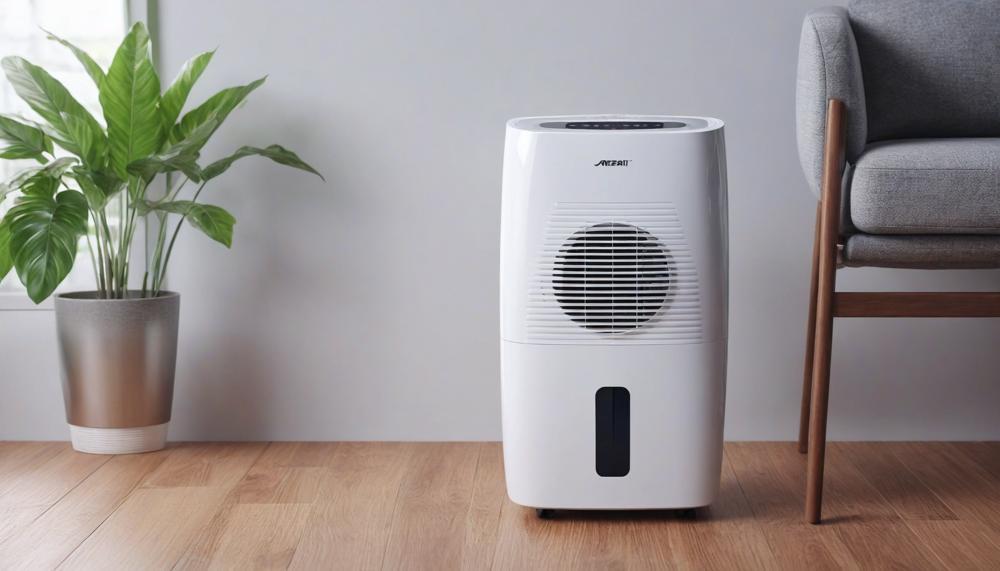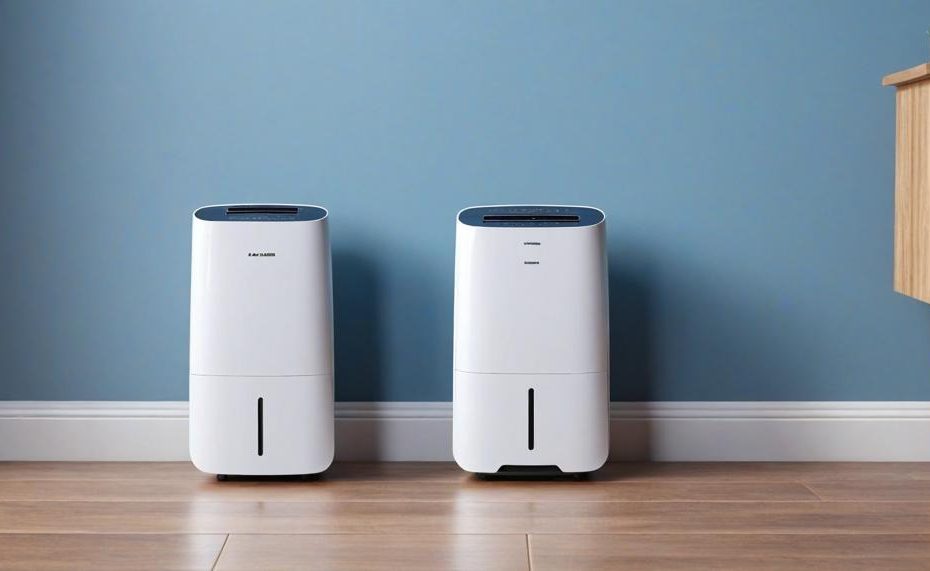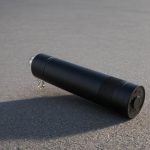Have you ever wondered what happens to your old dehumidifier once it’s out of commission? Tossing it in the trash might seem like the easiest solution, but did you know that improper disposal can have serious environmental consequences? Dehumidifiers contain hazardous materials that must be handled with care.
The refrigerants, in particular, are harmful to the environment and should never end up in landfills. Additionally, strict laws and regulations dictate how these devices should be disposed of to ensure safety and environmental protection.
So, what are your options?
- Can you throw a dehumidifier in the regular trash? No.
- Can you sell or donate a working dehumidifier? Yes.
- Should refrigerants be removed by licensed professionals? Yes.
Proper disposal is not just about following the law—it’s about safeguarding our planet. Understanding the right way to get rid of your dehumidifier can prevent hefty fines and contribute to a healthier environment. Whether it’s through local recycling programs, municipal waste services, or specialized disposal services, there are many ways to ensure your dehumidifier is disposed of correctly.
Key Takeaways:
- Dehumidifiers contain hazardous materials and require careful disposal.
- Refrigerants should only be handled by licensed personnel.
- Broken dehumidifiers must be disposed of according to state and EPA regulations.
- Functional units can be sold, donated, or recycled through various programs.
- Proper disposal helps avoid penalties and supports environmental sustainability.
Ready to learn the best way to dispose of your dehumidifier? Let’s dive into the details and make sure you’re doing it right.
Contents
- 1 Here’s How You Can Safely Dispose of Your Old Dehumidifier
- 2 Why Dehumidifiers Need To Be Properly Disposed Of
- 3 Ways To Dispose Of Your Old Dehumidifier (Where To Recycle Working Dehumidifiers)
- 4 How To Dispose Of A Broken and Non-Working Dehumidifier
- 5 Where Can I Recycle A Dehumidifier Near Me?
- 6 How Do Dehumidifiers Get Recycled In Your Location?
- 7 Conclusion
Here’s How You Can Safely Dispose of Your Old Dehumidifier
To properly dispose of your old dehumidifier and avoid any potential hazards or environmental harm, follow these steps:
- Identify the Condition of the Dehumidifier: Determine if your dehumidifier is functional or broken.
- Functional: Sell, donate, or recycle it.
- Broken: Follow local disposal regulations.
- Consult Local Regulations: Check your local and state laws, as well as EPA guidelines, for specific disposal requirements.
- Avoid Landfills: Dehumidifiers contain refrigerants and other hazardous materials that should not go into landfills.
- Use Government and EPA Resources: Utilize government websites or the EPA’s site to find approved disposal or recycling centres near you.
- Municipal and Private Services: Contact your municipal waste service or private waste disposal companies for safe disposal options. These services may have special programs for hazardous waste.
- Recycling and Exchange Programs: Participate in local reward or exchange programs that accept dehumidifiers for recycling.
- Rural Areas: If you live in a rural area, check with county landfills, as they might have specific instructions for handling broken dehumidifiers.
- Local Pick-Up Services: Some areas offer pick-up services for non-working dehumidifiers. Schedule a collection if available.
- Prevent EPA Penalties: Ensure compliance with disposal regulations to avoid penalties from the EPA.
Why Dehumidifiers Need To Be Properly Disposed Of
Not properly disposing of a dehumidifier can lead to various risks and consequences that impact the environment, human health, and legal standing.
| Potential Risk | Consequence | Explanation |
| Harmful Refrigerant Leaks | Environmental Damage | Dehumidifiers contain hydrofluorocarbons (HFCs), potent greenhouse gases that can leak and contribute to climate change if not properly handled. |
| Release of Harmful Chemicals | Soil and Water Contamination | Chemicals like mercury and lead can seep into the ground, contaminating soil and groundwater, posing risks to ecosystems and human health. |
| Fire Hazards | Air Pollution | Faulty dehumidifiers in landfills can catch fire, releasing toxic fumes into the air, affecting air quality and public health. |
| Harm to Scavenging Animals | Injury or Death of Wildlife | Animals can get injured by sharp edges or exposed wires, or become sick from ingesting toxic materials. |
| Legal Consequences | Fines or Legal Action | Improper disposal violates regulations, leading to potential fines or legal repercussions. |
| Human Health Risks | Health Issues | Exposure to harmful chemicals can cause respiratory problems, skin irritation, and other health issues, especially for communities near landfills. |
| Impact on Recycling | Resource Depletion | Valuable materials like copper, aluminum, and steel cannot be recovered if not recycled properly, leading to unnecessary resource depletion. |
| Environmental Pollution | Ecosystem Damage | Contaminants from dehumidifiers can harm air, water, and soil quality, affecting plants, animals, and humans. |
| Financial Consequences | Costly Cleanup | Improper disposal can lead to costly cleanups for environmental damage, with the responsible party potentially liable for expenses. |
Ways To Dispose Of Your Old Dehumidifier (Where To Recycle Working Dehumidifiers)
| Method | Description | Resources |
| Sell or Donate | Resell online or donate to charities | eBay, British Heart Foundation |
| Retailer Exchange Programs | Exchange for discounts on new appliances | Argos |
| Municipal Waste Services | Special recycling programs and free pickups | Local Council |
| Specialised Recycling Companies | Recycling for a fee, proper hazardous material handling | Recycle More |
| Scrap Metal Services | Sell to local scrap metal dealers | Local Scrap Dealers |
| EPA and Government Websites | Certified recycling facility locator | EPA |
| Utility Company Programs | Free pickup and recycling on certain days | Check with local utility companies |
| County Landfills | Accept appliances with specific disposal guidelines | Local County Landfills |

How To Dispose Of A Broken and Non-Working Dehumidifier
When disposing of a broken or non-working dehumidifier, follow these steps to ensure safe and environmentally-friendly disposal:
| Step | Action | Details |
| 1 | Unplug and Clean | Unplug the device, empty the tank, and clean it. |
| 2 | Check Local Regulations | Consult EPA and local guidelines on hazardous waste disposal. |
| 3 | Locate a Certified Recycling Center | Use Earth911 or similar resources to find a recycling center. |
| 4 | Consult Landfills and Waste Services | Contact local landfills and private waste services for disposal options. |
| 5 | Consider Professional Removal | Hire a licensed professional to handle refrigerants. |
| 6 | Reuse, Sell, or Donate | Consider selling or donating if the dehumidifier still works. |
These steps not only ensure compliance with regulations but also protect the environment from harmful refrigerants.
Where Can I Recycle A Dehumidifier Near Me?
To recycle a dehumidifier near you, consider the following options and steps:
Local Recycling Centers
- Research: Check local municipal recycling programs.
- Requirements: Ensure the center accepts dehumidifiers, as some facilities may have restrictions.
Electrical Appliance Stores
- Drop-off Programs: Many stores offer recycling programs for old appliances.
- Brands: Retailers like Best Buy and Home Depot often provide this service.
Charitable Donations
- Condition: If your dehumidifier is still functional, consider donating it to local charities or thrift stores.
- Tax Deduction: Donations may be tax-deductible.
Online Sales
- Platforms: Use websites like Craigslist, Facebook Marketplace, or eBay to sell your working dehumidifier.
- Eco-Friendly: Extends the life of the appliance, reducing waste.
Junk Removal Services
- Companies: Services like 1-800-GOT-JUNK? and LoadUp will pick up and recycle your dehumidifier.
- Convenience: These services often handle the heavy lifting and proper disposal.
Steps for Proper Disposal
- Unplug and Cool Down: Ensure the dehumidifier is unplugged and has cooled down completely.
- Secure Power Cord: Tie up the power cord to prevent tripping hazards.
- Clean the Unit: Empty any water and clean the unit to avoid any mess during transport.
- Check Facility Requirements: Contact the recycling center or store for any specific preparation instructions.
How Do Dehumidifiers Get Recycled In Your Location?
When it comes to recycling dehumidifiers in household settings, following the proper steps ensures environmental safety and resource conservation. Here’s a detailed guide to help you recycle your dehumidifier correctly:
| Step | Action | Details |
| Check Local Regulations | Contact waste management | Understand disposal guidelines, drop-off locations, or pick-up services. |
| Prepare the Dehumidifier | Unplug and Drain | Remove batteries, drain water, ensure it’s dry and secure. |
| Transport to Designated Locations | Drop-Off or Pick-Up | Take to recycling center or schedule a pick-up. |
| Avoid Regular Trash Disposal | Proper Disposal Only | Avoid environmental harm by not using regular trash services. |
| Disassemble (If Qualified) | Separate Components | Recycle metal, plastic, and electronics appropriately; handle refrigerants carefully. |
| Trade-In or Rebate Programs | Check Retailers | Look for trade-in offers for discounts on new models. |
Conclusion
When it’s time to retire your dehumidifier, ensuring its proper disposal is essential for both environmental and legal reasons. Dehumidifiers contain hazardous materials, such as refrigerants, which can have serious environmental consequences if mishandled. To dispose of your dehumidifier responsibly, follow these key steps:
- Assess the Condition: If your dehumidifier is still functional, consider selling or donating it. Platforms like eBay or local charities can help find it a new home. For broken units, special handling is required.
- Follow Local Regulations: Check local and state laws, as well as EPA guidelines, to understand the specific disposal requirements for dehumidifiers in your area.
- Avoid Landfills: Dehumidifiers should never be disposed of in regular trash. They contain harmful refrigerants that need to be removed by licensed professionals.
- Use Certified Services: Utilize local recycling programs, municipal waste services, or specialized disposal companies to ensure your dehumidifier is handled correctly. Many areas offer pick-up services for non-working units.
- Participate in Exchange Programs: Some retailers and utility companies offer programs that allow you to exchange old appliances for rebates or discounts on new purchases.
By properly disposing of your dehumidifier, you contribute to environmental sustainability and avoid potential penalties.





